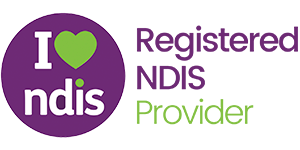The National Disability Insurance Scheme (NDIS) helps people with disabilities overcome their limitations and live an independent life. The NDIS support services can be accessed by Australian citizens, which allows them to receive the right care they need as per their requirements, be it physical, mental, or emotional well-being. But does NDIS cover ADHD?
The NDIS does not specifically provide funding for Attention deficit hyperactivity disorder (ADHD), but it does offer several support services that an NDIS participant can receive and get benefits from as an individual who has ADHD.
This blog serves as a guide for patients with ADHD and shows how NDIS can be rewarding for them.
What is ADHD?
Attention Deficit Hyperactivity Disorder (ADHD) is a neurodevelopmental disorder that affects both children and adults, impacting their ability to sustain attention, control impulsive behaviours, and regulate hyperactivity. Individuals with ADHD often experience challenges in various aspects of life, including academic and occupational performance, relationships, and overall daily functioning.
There are three main subtypes of ADHD:
- Predominantly Inattentive Presentation: It is characterised by difficulties in sustaining attention, organising tasks, and following through on responsibilities.
- Predominantly Hyperactive-Impulsive Presentation: It refers to excessive fidgeting, restlessness, impulsive decision-making, and difficulty in waiting one’s turn.
- Combined Presentation: This type is a combination of both inattentive and hyperactive-impulsive symptoms.
ADHD is a spectrum disorder, and its impact varies from person to person. While it is often diagnosed in childhood, symptoms can persist into adolescence and adulthood. The exact cause of ADHD is not fully understood, but genetic and environmental factors are believed to contribute.
Through NDIS effective management and support, including behavioural therapy, education, NDIS nursing services, and assistance with different tasks, individuals with ADHD can find relief and lead a better life. Therefore, understanding and addressing ADHD is crucial for individuals seeking support, as it can significantly impact their quality of life across various domains.
What are the Symptoms of ADHD?
People with ADHD can lead normal lives if treated the right way. But what are the symptoms of ADHD? Let us find out.
ADHD symptoms can be divided into two main domains, i.e., inattention and hyperactivity-impulsivity. Inattentive symptoms include difficulty sustaining focus on tasks, frequent careless mistakes, forgetfulness, and organisational challenges.
Whereas, hyperactivity-impulsivity symptoms involve excessive fidgeting, restlessness, impulsiveness, difficulty waiting, and a tendency to interrupt others. Inattentive individuals may struggle with completing assignments, following instructions, or maintaining attention during conversations. Hyperactive-impulsive traits may lead to impulsive decision-making, difficulty sitting still, and challenges in engaging in activities quietly.
These symptoms often interfere with academic, occupational, and interpersonal functioning. It’s important to note that the symptoms of ADHD vary, and some individuals may predominantly exhibit inattentive symptoms, while others display hyperactive-impulsive traits.
The NDIS and ADHD
The National Disability Insurance Scheme (NDIS) does not categorise ADHD as a standalone permanent disability or impairment. This is because ADHD can often be effectively treated and managed with medication and psychotherapy. However, NDIS recognises the potential challenges faced by individuals with ADHD, particularly when it comes along with other conditions such as autism, anxiety, dyslexia, or developmental challenges.
If an individual has comorbid conditions alongside ADHD, they may be eligible for NDIS funding support. In this matter, an NDIS service provider can provide you with insights on whether you can access specific support services through an NDIS plan to treat the difficulties that relate to ADHD and other significant impairments.
While NDIS may not explicitly cover ADHD as a standalone disability, its flexibility in addressing the unique needs of individuals with comorbid conditions highlights its commitment to providing support where necessary. This approach allows for a deeper understanding of the diverse challenges individuals may face, ensuring that those with ADHD and additional conditions can access the assistance and resources they require through the NDIS framework.
This information answers the question: does NDIS cover ADHD in a comprehensive way. If you are wondering if you meet the eligibility criteria for the NDIS, then keep reading.
NDIS Eligibility Criteria
The National Disability Insurance Scheme (NDIS) in Australia has specific eligibility criteria designed to ensure that individuals with disabilities receive the necessary support and services.
To qualify for NDIS, an individual must meet the following key requirements:
- Age and Residency: The person must be under 65 years of age when they first apply for the NDIS. They must also be an Australian citizen, a permanent resident, or hold a Protected Special Category Visa.
- Disability Requirements: To be eligible, an individual must have a permanent and significant disability that substantially impacts their ability to participate in daily activities. The disability should be likely to be present for a person’s lifetime and require ongoing support.
- Functional Impairment: The disability should result in functional impairment, meaning it significantly affects the person’s capacity to communicate, socialise, learn, or perform everyday tasks independently.
- Early Intervention Requirements: In some cases, early intervention support may be provided for children under the age of 6 who have developmental delays or disabilities that are likely to result in a need for long-term support.
- Tested and Approved Diagnosis: A person seeking NDIS support must have their disability tested and diagnosed by an approved healthcare professional. This diagnosis is crucial in determining the appropriate level of support needed.
It’s important to note that the eligibility process involves a comprehensive assessment, often carried out by the National Disability Insurance Agency (NDIA) or its partners. The assessment considers various aspects of the individual’s life and functioning to determine the extent of support required.
Meeting these eligibility criteria allows individuals to access NDIS funding and services tailored to their specific needs. The NDIS aims to empower individuals with disabilities by providing them with the tools and resources necessary to enhance their independence, participation in the community, and overall quality of life.
7 Tips You Should Keep in Mind When Applying for NDIS Funding
Here are some key tips to keep in mind:
- Review the National Disability Insurance Agency’s (NDIA) Access List to understand the types of disabilities and conditions that are eligible for NDIS support. Ensure that your condition aligns with the criteria outlined in the list.
- If you have comorbid conditions, such as ADHD, alongside other disabilities, check if these conditions are listed as eligible for NDIS support. Having multiple conditions can enhance your eligibility for NDIS funding.
- Contact the NDIA to request the Access Request Form. This form is the first step in the application process and helps collect essential information about your disability and support needs.
- Ensure that your disability has been professionally diagnosed by an approved healthcare professional. A thorough and accurate diagnosis is crucial to supporting your application and determining the appropriate level of NDIS funding.
- Clearly document how your disability affects your daily life and functioning. Provide specific examples of challenges you face in communication, socialisation, learning, or performing everyday tasks independently.
- Gather any relevant medical reports, assessments, or documents that substantiate your disability and support needs. This documentation can strengthen your case during the application process.
- Complete the Access Request Form thoroughly, providing detailed information about your disability, support requirements, and how these impact your daily life. Include all relevant details to ensure a comprehensive understanding of your situation.
Final Thoughts
ADHD is not a disability that is supported by the NDIS; however, as an ADHD patient, you can still apply for NDIS funding if your comorbid conditions contribute to ADHD. For better assistance, consult with an NDIS provider who can help you navigate the process more efficiently.





